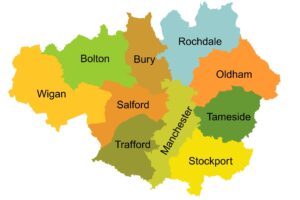In August, Collaborate asked Ipsos MORI to survey 1,000 UK adults about their perceptions of public service delivery, and about their expectations of government. The results told us that only 15% of the public feel their preferences are usually listened to by public service providers. Only 21% of the public feels that public service providers regularly understand their needs; and only 13% of people feel regularly involved in decision about their services they receive.
When asked about being treated with dignity and respect by service providers, three quarters (76%) said it was just as important as the end-service being delivered.
What should we make of these figures? People value quality relationships; they want them to be a core part of public services; but many aren’t experiencing these quality relationships with service providers enough of the time. This is the Groucho Marx challenge for public services: to paraphrase: ‘I’ve had a good experience… but this wasn’t it.’
Last week Collaborate published its latest report called Collaboration Readiness: why it matters, how to do it and where to start. In it, Sarah Billiald and I argue that transformation in public services can never achieve what it says on the ticket without taking the grubby practice of collaboration more seriously. This does not mean endlessly talking about it more. It means getting much more systematic about the way we support individuals, organisations and systems to work together in a way that blurs traditional boundaries between sectors, silos and preconceptions.
Public services must face up to the Groucho Marx challenge in the context of massive cuts and sustained social demand (£14.5bn supply and demand gap by 2025 by our last count, but let’s wait for the CSR for an update). Add in a national political narrative that is still trying to work out whether the state is a force for productive good or the root of all dependency, and we are at a curious staging post.
‘The only way that government (at whatever level) can live up to these expectations in a complex market for social goods is to think and act differently: seeing its role as a conductor (and commissioner) of cross-sector collaboration to improve outcomes’
What is clear to us – and presented as such in the report – is that subverting standard competitive or top-down practice in service delivery is possible, and many places are doing it already. We profile work in Scotland, Sunderland, Suffolk, Sheffield (and other places that don’t begin with S like Coventry, Essex and Greater Manchester). Some are addressing the need for collaborative services within the context of devolution – itself an era-defining opportunity to create new systems of economic and social service that work for people (rather than the other way around). As tactical negotiation evolves into the challenge of delivery, building readiness to get beyond the ‘conversation between professionals’ (as one civil society activist put it) will be vital.
Back to our survey data. Some 80% of people surveyed said that government has at least some responsibility to look after them if things go wrong. Three quarters said that government has a responsibility to help them find a decent place to live. They are arguably right to think so – what kind of society will we create if we are leaving people to look after themselves in areas we know the market doesn’t work?
The only way that government (at whatever level) can live up to these expectations in a complex market for social goods is to think and act differently: seeing its role as a conductor (and commissioner) of cross-sector collaboration to improve outcomes. The provider side challenge is also profound, both inside the public sector and out – requiring a shift from a simplistic delivery or outsourcing mentality to partnerships based on real shared risk for improving local outcomes of the long term. The business model of neither commissioners nor providers is, in many areas of public services, well set up to do make this shift. But this is where collaboration readiness comes in.

















Leave a Reply